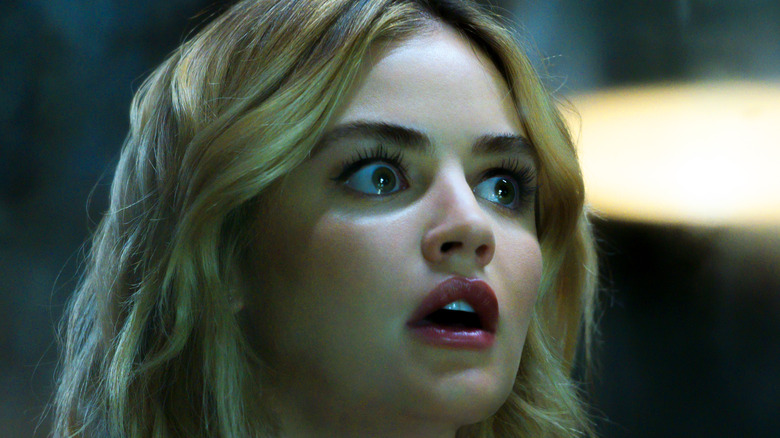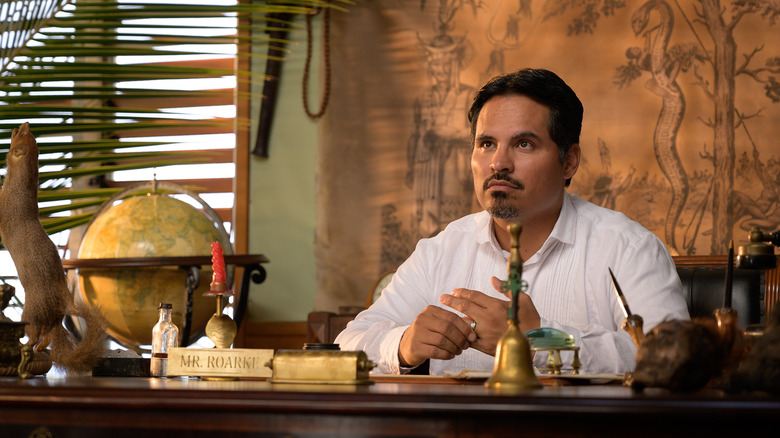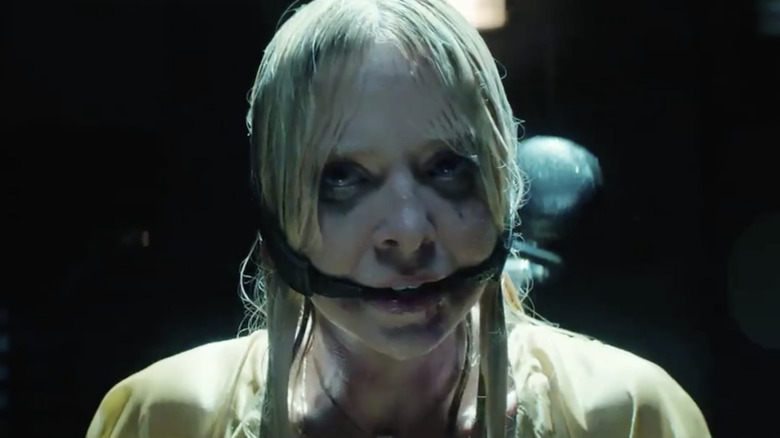Fantasy Island Review: A Trip Not Worth Taking
In 1977, Fantasy Island debuted on ABC. Starring Ricardo Montalbán (Star Trek's Khan) as the enigmatic Mr. Roarke, head of a mysterious island resort, the series told the stories of guests who came to the titular island, where, for a price, they could live out their greatest fantasies — and learn a little something about themselves along the way.
But it's been 36 years since the TV show last graced the airwaves, and Blumhouse's horror-movie reimagining of the property will probably remind modern viewers more of Lost than the original series. Like Lost, Fantasy Island takes place on a mysterious island that ends up being much, much more dangerous than it seems. Also like Lost, Fantasy Island is full of interesting ideas, but can't manage to wrangle them into a coherent, much less satisfying, conclusion.
In the film, Michael Peña (Ant-Man) takes over for Montalbán as Mr. Roarke, manager of the Fantasy Island resort. The rest of the cast plays Fantasy Island's latest guests. Melanie (Lucy Hale) is on the Island to get revenge on her childhood bully, Sloane (Mr. Robot's Portia Doubleday). JD (Ryan Hanson) wants to live a life of wealthy debauchery, and drags his step-brother Brax (Jimmy O. Yang) along for the ride. Gwen (Maggie Q) dreams of a chance to accept the marriage proposal she rejected years ago, while Patrick (Austin Stowell) wants to join the military like his late father.
Of course, there's more going on than simple wish fulfillment. Both Fantasy Island and Roarke have their own agendas, and it isn't long before the guests' seemingly simple fantasies take a number of nightmare turns.
A different, less creative version of this movie would simply punish the characters, slasher-flick style, for indulging in their deepest, darkest desires. To its credit, Fantasy Island is more ambitious. For most of its runtime, Fantasy Island is more of a supernatural mystery than a horror film. It's not a morality play but a character study that uses a fantastic setup to flesh out its characters and set them on the road to personal growth.
Again, so far, so Lost. But Fantasy Island is still a Blumhouse movie, which means horror is going to rear its head eventually. That's when the movie falls apart.
On Fantasy Island, you get four movies at once
Fantasy Island is at its best in its middle section, after the premise has been established and the guests are off on their respective fantasies. Director Jeff Wadlow and cinematographer Toby Oliver shoot the four separate stories like they're all different movies, adjusting the film's style to fit the genre.
For example, Melanie and Sloane are stuck in a Saw-inspired slasher flick. Patrick is in a war film. Gwen is in a romantic drama, and JD and Brax find themselves in a sex comedy that quickly becomes a home-invasion thriller. It's a playful and clever way to use Fantasy Island's original premise, and it makes for an energetic, compelling movie.
None of the individual plotlines are particularly unique, of course, but that doesn't really matter. Fantasy Island constantly cuts between the four, so you never get bored with one. It gets even better when the stories begin to cross over with one another. At that point, it feels like Fantasy Island is building to some big, grand conclusion in which all the pieces will come together to create something more than the sum of its parts.
In a certain respect, the movie delivers on that promise. Naturally, none of the characters' fantasies go according to plan. It's for the best. Patrick comes to peace with his father's death. Melanie and Sloane forgive each other and strike up an uneasy friendship. JD realizes that it's time to settle down and focus on starting a family. Gwen realizes why she feels like she's unworthy of love.
The characters don't get the fantasies they want, but they get the experiences that they need. Then they come back together, each having grown as a person. It's an emotionally satisfying conclusion to the characters' arcs, and it's right in line with the original television show. Unfortunately, at this point, the movie is only half over.
Horror that's dead on arrival
There are a couple of casualties in Fantasy Island's fantasy sequences, but for the most part the tension comes from the movie's big mysteries, not whether its characters will survive. Where does the island get its powers? What is Roarke really up to? There are clearly sinister forces at work. What are they, and what do they have planned?
But instead of giving satisfying answers, Wadlow and his co-writers, Chris Roach and Jillian Jacobs, resort to increasingly ridiculous plot twists to keep the action moving. It doesn't work. One major reveal hinges on a character we've never met. Another renders a character's earlier behavior completely illogical. Nothing stands up to close scrutiny. Once you start asking questions, less and less of the movie makes sense.
The big twists don't serve the story. They're there because Fantasy Island is ultimately a horror movie, and horror movies have plot twists. By the time it reaches its climax, Fantasy Island has devolved into a run-of-the-mill chase scene through a series of dark caves. It's not particularly exciting, it's not scary, and it's hard to care. The characters' individual stories reached natural conclusions a while ago. Now they're just going through the motions.
It's too bad, too, because if Fantasy Island had ditched the more overt horror elements and leaned into its strengths, this could've been the start of a new franchise. Fantasy Island ends with a reveal that makes it into a sort-of prequel for the TV show. It's a sound formula for a series. Theoretically, Sony and Blumhouse could send new guests to Fantasy Island for a new set of adventures every year.
But the sloppy final act undermines all the goodwill that Fantasy Island and its game cast built up during its beginning. It's hard to imagine audiences clamoring for more. After all, the original TV show ended before most of Fantasy Island's target audience was even born. Fantasy Island might be based on an existing property, but nostalgia and brand loyalty aren't going to save this one.


